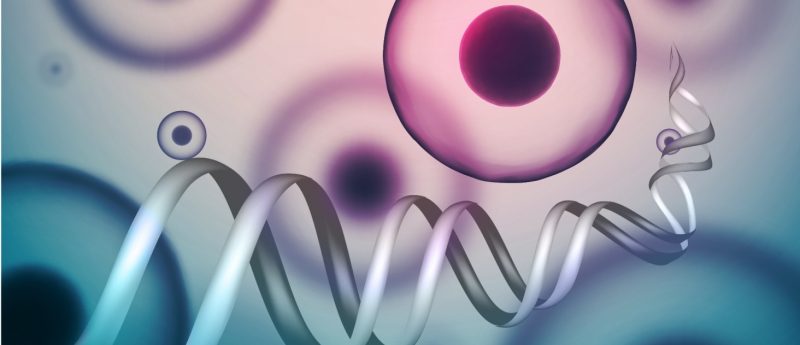RegMed Companies: Developing Stem Cell Fundamentals

In the coming months, one of RegMedNet’s newest company sponsors, Asymmetrex, plans to introduce the RegMedNet community to its technologies and development goals. In particular, it will anticipate the impact that its adult tissue stem cell counting technology may have on RegMed companies in 2016.
As one of the newest company sponsors of RegMedNet, Asymmetrex is very excited to join and participate in this vibrant community of scientists, physicians, entrepreneurs, investors, scholars, students, patients, and advocates who invest time, energy, and passion to inform and guide the growth and development of the biomedical discipline of Regenerative Medicine. Over the next few months, Asymmetrex will undertake a series of RegMedNet activities to provide an informative introduction of its mission and goals to the RegMedNet community. These activities will include RegMed concept posts like this one, an interview with Asymmetrex founder and director, James L. Sherley, M.D., Ph.D., and a webinar developed to share information about Asymmetrex’s current lead RegMed technology, AlphaSTEM tissue stem cell counting technology (http://asymmetrex.com/our-products/drug-development-regenerative-medicine).
“Product” versus “Platform” technology is a common biotech company description discussion that directs both entrepreneurs’ representations and biotech investors’ interests. Many of the two partnering types in biotech commercialization prefer the prospect of bringing a blockbuster drug product into a waiting marketplace. However, facile biotechnologies that provide high impact platform technology solutions for multiple integrated problems, especially in drug development, can also present as very attractive ventures for development and investment that have potential to improve health and quality of life.
In the case of RegMed companies, it is not clear where they go on this often-applied scale. In fact, the product-platform scale often seems inappropriate for them altogether. For example, consider the many RegMed companies pursuing restorative therapies that employ heterologous adult tissue stem cells (e.g., cardiac repair therapies using bone marrow-derived cells). These are really neither “product” companies, nor “platform” technology companies.
Instead, what many existing and emerging RegMed companies are is better defined as “Stem Cell Fundamentals” companies. They seek to develop one or more fundamental biological properties of stem cells to address important unmet needs in medicine. Many RegMed companies operate more like engineering firms than biopharmaceutical firms. They integrate fundamental knowledge about the unique properties of stem cells into established and emerging medical practice to achieve innovative treatments for diseases, disorders, and injuries that have proven refractory to previous medical therapies. Their goal is to develop rational and empiric, engineered, therapeutic approaches that implement cells and cell regulation to restore and maintain health.
The description “Stem Cell Fundamentals” company also works well for companies like Asymmetrex, which at first glance might appear to fit into multiple categories. The company markets products for counting adult tissue stem cells (e.g., AlphaSTEM technology); but it is also working to develop and commercialize a platform technology with application for producing a diverse array of natural adult tissue stem cells (SACK technology; http://asymmetrex.com/our-products/adult-tissue-stem-cell-production). Neither of these two main pursuits may seem to meet the definition for a RegMed company. However, enabling the success of RegMed therapy companies by providing essential knowledge (e.g., stem cell dose for treatment development) and technologies (e.g., procedures for increasing stem cell number) is one of Asymmetrex’s major goals.
Asymmetrex meets the RegMed designation because it “[seeks] to develop one or more fundamental biological properties of stem cells to address important unmet needs in medicine.” It is the quintessential “Stem Cell Fundamentals” company, because the development of all of its patented technologies, technologies in development, and marketed products are based on asymmetric self-renewal, a fundamental, defining property of adult tissue stem cells. Asymmetrex applies the principles of asymmetric self-renewal to count adult tissue stem cells and expand them naturally.
Asymmetric self-renewal is the process by which a stem cell divides continuously to renew itself, while simultaneously producing non-stem sister cells that differentiate and mature to populate the various organs and tissues of the body. In normal adult tissues, asymmetric self-renewal is a tissue stem cell exclusive property, unshared with any other type of postnatal tissue cells known to date.
From its focus on asymmetric self-renewal, Asymmetrex has developed a rich portfolio of intellectual property and products that have great potential to accelerate the regenerative medicine pursuits of many RegMed companies, as well as research in academic laboratories. In the next several posts to RegMedNet members, Asymmetrex will relate how one of these products, AlphaSTEM technology for counting adult tissue stem cells, could impact the progress of not only RegMed companies in 2016, but also other major players in biomedicines development.
Please, check-in to the Asymmetrex RegMedNet Company page the week of January 25 for the next installment, and the free webinar on counting adult tissue stem cells for applications in regenerative medicine and drug development.